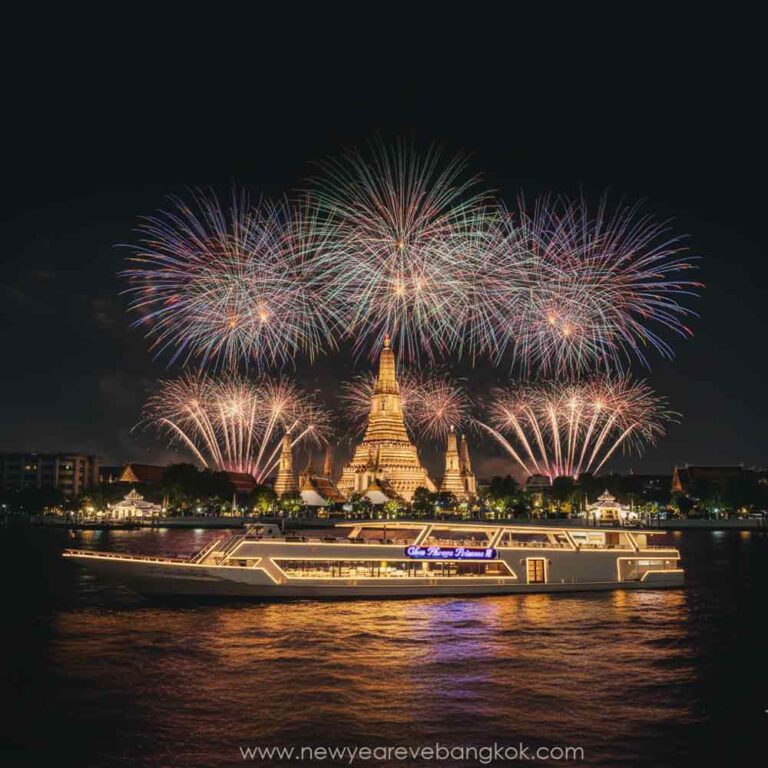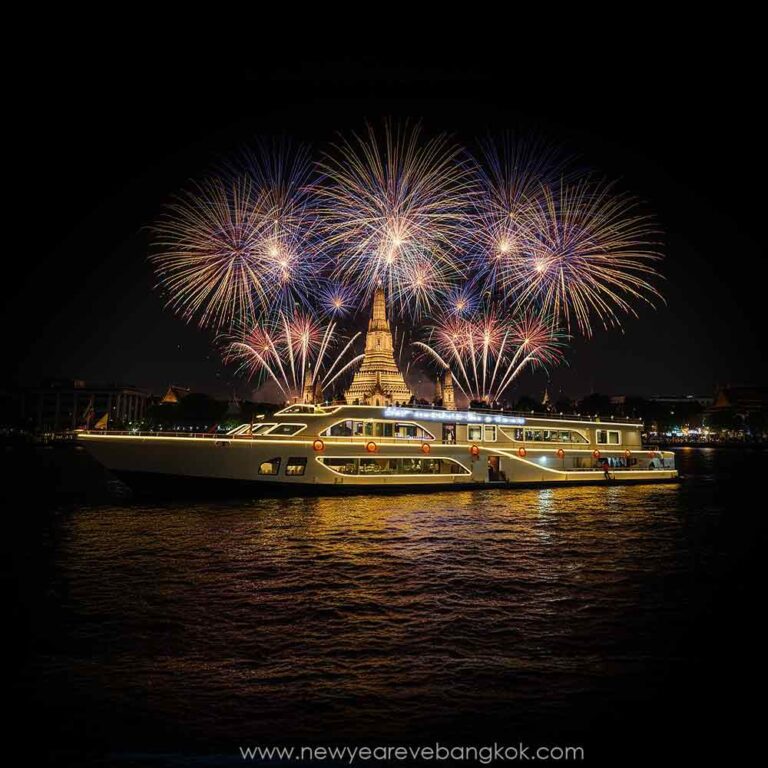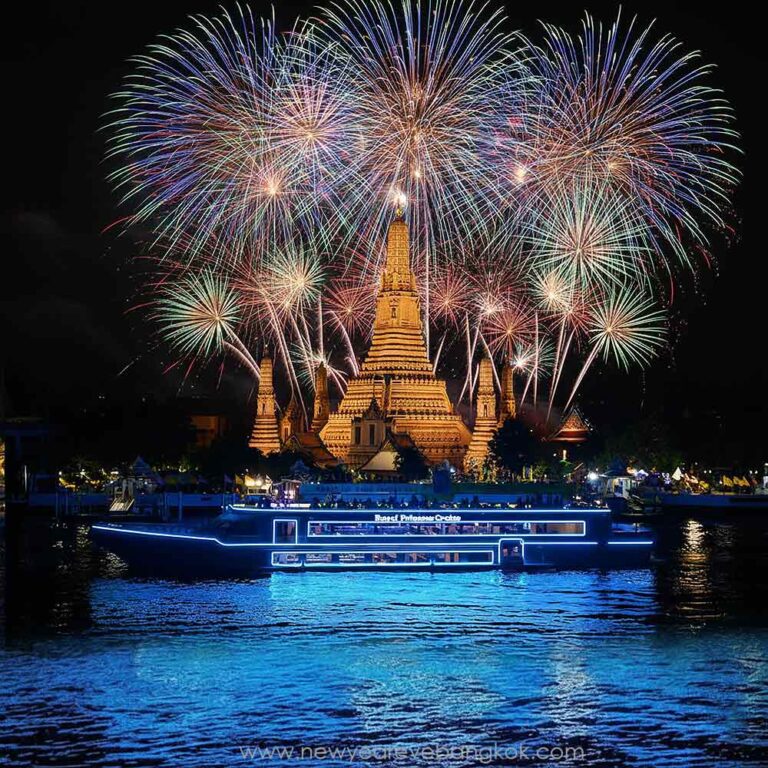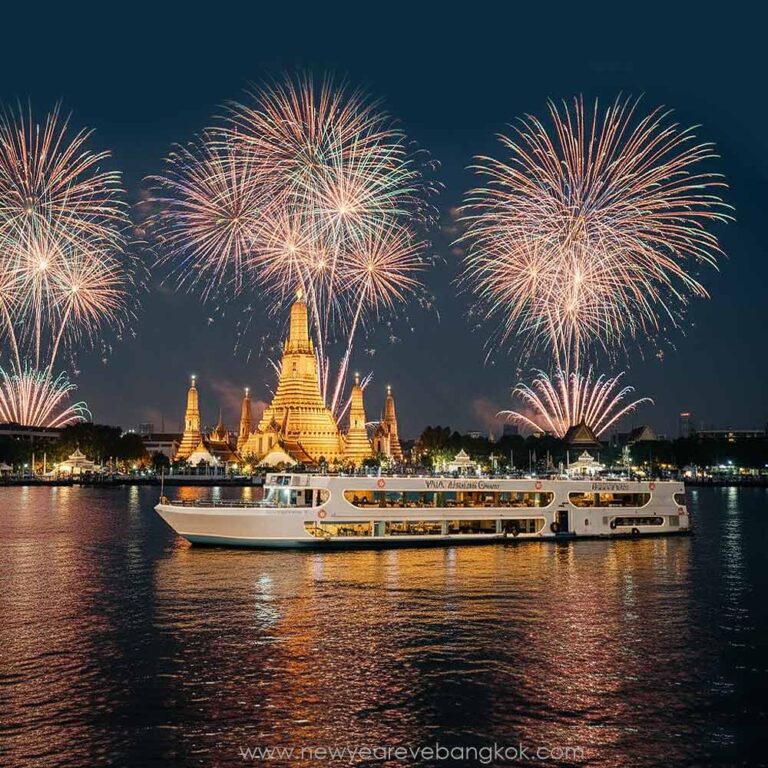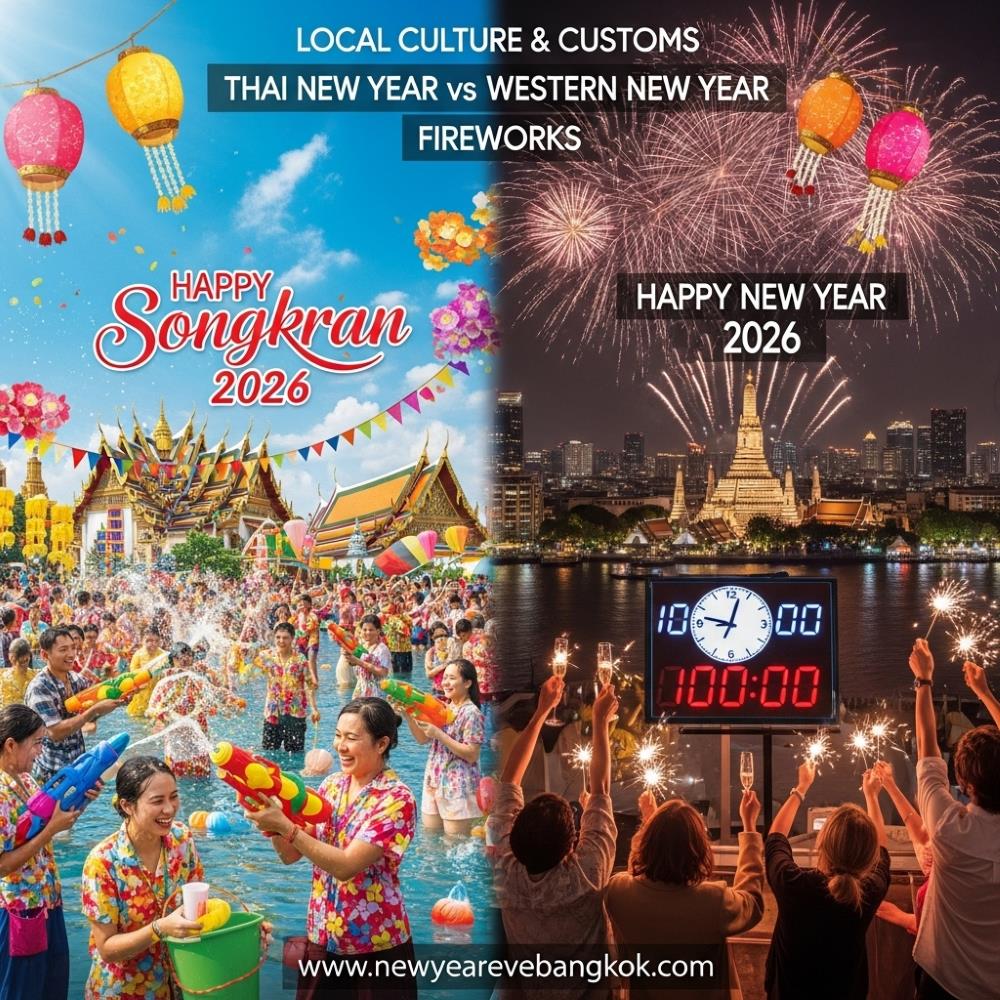
Embracing the “Sanook” Spirit: Thai New Year vs. Western New Year in Bangkok 2026
Discover the vibrant contrasts of Thai New Year (Songkran) and Western New Year celebrations in Bangkok 2026. Explore unique traditions, cultural significance, and find your perfect way to welcome a new beginning in Thailand’s dynamic capital.
Thai New Year vs. Western NY in Bangkok 2026
Experience the best of both worlds in Bangkok 2026! Dive into the cultural richness of Songkran and the festive countdowns of Western New Year. Your guide to traditions, celebrations, and unforgettable moments.
A Tale of Two New Years: Thailand’s Unique Celebrations
Bangkok, a city renowned for its captivating blend of ancient traditions and modern dynamism, offers a truly unique experience when it comes to ringing in the new year. Unlike many Western countries that observe January 1st as the primary New Year, Thailand celebrates two distinct new year periods: the universally recognized Western New Year and its own traditional Thai New Year, known as Songkran. Understanding the nuances and vibrant customs of each provides a deeper appreciation for Thailand’s rich cultural tapestry.
Western New Year in Bangkok: A Global Spectacle
As the calendar flips from December to January, Bangkok transforms into a glittering hub of anticipation for the Western New Year. The city’s iconic skyline becomes a canvas for spectacular fireworks displays, and lively countdown parties ignite the night.
Dazzling Displays and Festive Fervor
- CentralWorld Square: The epicenter of Bangkok’s Western New Year celebrations, CentralWorld hosts a colossal outdoor countdown event with live music, street food, and a breathtaking fireworks show that lights up the city.
- Riverside Revelry: The Chao Phraya River comes alive with luxury dinner cruises offering prime views of riverside fireworks. Iconic landmarks like ICONSIAM also host their own impressive pyrotechnic displays, drawing large crowds to the riverbanks.
- Rooftop Bars: For those seeking a more sophisticated celebration, Bangkok’s numerous rooftop bars provide unparalleled panoramic views of the fireworks, accompanied by gourmet dining and celebratory cocktails. Popular choices include Vertigo, Octave, and Mahanakhon SkyBar.
Modern Traditions and Global Appeal
While rooted in Western customs, Bangkok’s New Year’s Eve celebration embraces a global spirit. Tourists and locals alike gather to enjoy:
- Live Music and DJ Sets: Many venues, from large public squares to intimate clubs, feature live bands and renowned DJs to keep the party going until the early hours.
- Gourmet Dining: Special New Year’s Eve menus are a staple in Bangkok’s diverse culinary scene, offering everything from traditional Thai feasts to international fine dining experiences.
- Shopping Extravaganza: Department stores and shopping malls extend their hours and offer special promotions, making it a popular time for end-of-year shopping.
Songkran: The Traditional Thai New Year (April 2026)
Fast forward to April, and Thailand prepares for its most significant and joyous annual event: Songkran, the traditional Thai New Year. Rooted in Buddhist traditions, Songkran is a vibrant celebration of cleansing, new beginnings, and family reunification.
The Wet and Wild Water Festival
Songkran is synonymous with its exhilarating water fights. What began as a symbolic act of purification has evolved into a nationwide water festival, particularly in cities like Bangkok.
- Water Splashing: From playful squirts to full-blown water gun battles, the streets become a lively playground. Locals and tourists embrace the “sanook” (fun) spirit, splashing water on each other as a way to wash away bad luck and welcome prosperity for the year ahead.
- Cultural Hubs: While the water fights are a major draw, many areas, especially around temples, maintain the more traditional aspects of Songkran.
- Khao San Road: Famously known as a backpacker haven, Khao San Road transforms into one of Bangkok’s most energetic Songkran zones, with continuous water throwing and street parties.
- Silom Road: Another popular spot for large-scale water fights, Silom Road often sees thousands of revelers engaging in playful water battles.
Sacred Rituals and Deep Cultural Meaning
Beyond the playful water fights, Songkran holds profound cultural and spiritual significance.
- Bathing of Buddha Images: Devout Thais visit temples to gently pour scented water over Buddha statues, a ritual believed to bring good luck and purify the soul.
- Paying Respect to Elders (Rod Nam Dam Hua): Younger generations respectfully pour scented water onto the hands of elders, seeking blessings and expressing gratitude. This ritual strengthens family bonds and promotes humility.
- Temple Visits and Merit-Making: Many Thais spend Songkran visiting temples, making merit by offering food to monks, and participating in other Buddhist ceremonies.
- Traditional Performances: Throughout the Songkran period, especially in cultural centers and public spaces, you can witness traditional Thai dance, music, and cultural performances.
Thai New Year vs. Western New Year: Key Differences
| Feature | Western New Year (Dec 31st – Jan 1st) | Thai New Year (Songkran, April 13th-15th) |
| Origin | Gregorian Calendar, global celebration | Buddhist calendar, traditional Thai observance |
| Primary Focus | Countdown, parties, fireworks, new year resolutions | Cleansing, purification, family, traditional rituals |
| Main Activity | Fireworks, concerts, dining | Water splashing, temple visits, merit-making |
| Atmosphere | Festive, celebratory, urban party | Joyful, traditional, community-focused, playful |
| Symbolism | Fresh start, new beginnings | Washing away bad luck, welcoming prosperity |
Conclusion
Whether you’re drawn to the electric energy of Bangkok’s Western New Year countdown or the unique cultural immersion of Songkran, Thailand offers a distinct and memorable way to usher in a new year. Both celebrations showcase the city’s incredible ability to blend tradition with modernity, providing unforgettable experiences for every traveler. Embracing the differences between these two important annual events allows visitors to truly appreciate the depth and diversity of Thai culture.
FAQ
Q1: When is Songkran celebrated in 2026?
A1: Songkran, the traditional Thai New Year, is officially celebrated from April 13th to 15th, 2026. However, celebrations can extend for a few days before and after these dates, especially in popular tourist areas.
Q2: What should I wear for Songkran?
A2: Wear light, quick-drying clothing that you don’t mind getting completely soaked! Swimwear, t-shirts, and shorts are common. Waterproof bags are essential for protecting electronics and valuables.
Q3: Are all businesses closed during Songkran or Western New Year in Bangkok?
A3: During Western New Year, many businesses, especially tourist-oriented ones, remain open. However, some local shops and offices may close on January 1st. For Songkran, many local businesses and government offices close, particularly during the main three days (April 13-15). Tourist areas will largely remain open for the festivities.
Q4: Can I avoid getting wet during Songkran if I don’t want to participate?
A4: While it’s difficult to completely avoid getting wet in tourist-heavy areas during Songkran, especially in Bangkok, you can minimize it by staying in air-conditioned malls, using public transport like the BTS Skytrain or MRT (where water throwing is generally not allowed), or choosing less active areas.
Q5: What are the best areas for New Year’s Eve fireworks in Bangkok?
A5: CentralWorld Square, the Chao Phraya River (with cruise options or riverside spots like ICONSIAM), and various rooftop bars offer excellent views of the New Year’s Eve fireworks.



